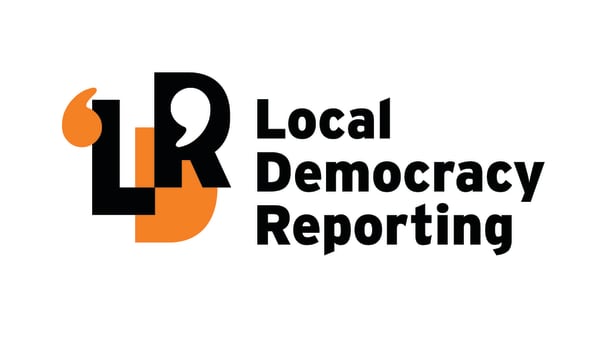A “roaring trade” of Gisborne’s kerbside rubbish collection stickers online has raised concerns it could be linked to a much larger issue — illegal waste dumping.
Sold by the council for $2.80 per orange sticker and $36.40 for a sheet of 13, the stickers are being sold much cheaper online — $20 a sheet.
“Why pay more!” one of the seven sellers asks. 
Gisborne residents use the stickers for rubbish disposal and collection, with one sticker required for 5kg of refuse.
A council spokesperson said the resellers have excess stickers because some residents have better recycling habits.
However, district councillors raised the question of whether people were selling their stickers and then dumping rubbish.
One seller, who did not accumulate much waste, had sold five sticker sheets to one buyer.
At a meeting last week, councillor Tony Robinson said he believed the “roaring trade” could be tenants selling the stickers and potentially illegally dumping rubbish after hours.
Councillor Rob Telfer questioned whether landlords were passing the stickers they received from paying rates on to tenants.
Gisborne’s illegal waste dumping has increased nearly twofold since last year, now reaching 775 tonnes.
Dumped rubbish — ranging from animal carcasses and syringes to fridges and sticker-less bags — can be found on Gisborne’s streets, beaches and parks.
Councillor Collin Alder said the amount spent on cleaning up illegally dumped rubbish probably outweighed the stickering system.
“Wouldn’t we be better off having a free dumping system?”
Fly-tipping has nearly doubled every year since 2021, with figures showing the volume of waste dumped went from over 150 tonnes to almost 350 tonnes by the end of 2023.
It is now over five times that amount.
Council solid waste manager Phil Nickerson reported earlier this year the cost to the ratepayer for disposing of illegal waste was $485 a tonne.
That means the total bill for this year could be around $375,875, blowing out the council’s annual budget of $70,000.
A spokesperson said the council had spent $106,794.93 on illegal dumping to date.
During last week’s meeting, councillors pressed staff on the matter.
Councillor Teddy Thompson said it was happening “right in front of council’s noses ... people can just throw their rubbish bags without council stickers and get away with it”.
He questioned what the council was doing as a deterrent.
Council chief executive Nedine Thatcher Swann said the fines were limited to $400 under legislation and required investigation work to identify people.
Thatcher Swann said $30,000 was the maximum penalty and that was for serious offences. The council had not taken this path yet.
“Often it is quite difficult to catch someone. Local authorities can only go so far. We need individual accountability.”
Mayor Rehette Stoltz agreed and said the community needed to self-police.
“On small country roads, people go there with trailer-loads of trash and then dump it”.
If people or councillors see it happening, they need to report it.”
Councillor Aubrey Ria said the issue normally increased in Titirangi and Kaiti Hill during summer and council could restrict vehicle access to Kaiti Hill at night, as this is when it normally occurs.
Telfer suggested raising the issue with Local Government NZ (LGNZ).
Deputy Mayor Josh Wharehinga said the council had submitted a remit to LGNZ, which previous councillor Kerry Worsnop organised.
“It’s definitely something we need to be following up on.”
Director of engagement and Māori partnerships Anita Reedy-Holthausen said the council was organising an educational campaign.
Council acting director of liveable communities Kerry Hudson said the campaign would include promotion and ongoing education on how to dispose of waste products.
Illegal dumping was an issue all over New Zealand and could be attributed to purchasing habits, the rising cost of living or a lack of recycling education, Hudson said.
“We have found that a lot of what is collected is a recyclable product and could be disposed of at no cost.”
Last year, Jason Bagnall — owner of Gizzy Waste skip bin hire and waste removal — called the council out for not having its own council-owned landfill or transfer station in the city.
Residents were restricted to a privately owned business, which reportedly had one of the highest waste disposal rates in the country, he said.
Hudson said the council had completed a Resource Recovery Centre feasibility study, which is still being investigated. The project was held up because of Covid and weather events, including Cyclone Gabrielle, she said.










